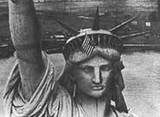He had me at "my fellow citizens."
But of the many remarkable things Barack Obama said as he assumed this office of president, this simple phrase spoke volumes to me, and no doubt to many of my fellow Vietnam veterans, numbering some 2.5-million with another 6+ million who served during the Vietnam era:
For us, they fought and died, in places like Concord and Gettysburg; Normandy and Khe Sahn.
I'll leave the analysis to others. I know what hearing that from the lips of our new President meant to me.
Vietnam, like Iraq, was a terrible mistake. But, as Vietnam Veterans Against the War have said for 40 years, it is possible — and fitting — to honor the warrior, not the war.
By mentioning Khe Sahn in the same breath as Lexington, Gettysburg, and Normandy, Obama has done that.

 December 26, 1971
December 26, 1971 It begins, “Be it known that the American people and the Vietnamese people are not enemies. The war is carried out in the names of the people of the United States and South Vietnam, but without our consent. It destroys the land and people of Vietnam. It drains America of its resources, its youth, and its honor.”
It begins, “Be it known that the American people and the Vietnamese people are not enemies. The war is carried out in the names of the people of the United States and South Vietnam, but without our consent. It destroys the land and people of Vietnam. It drains America of its resources, its youth, and its honor.”
